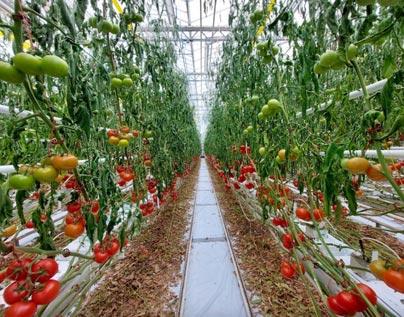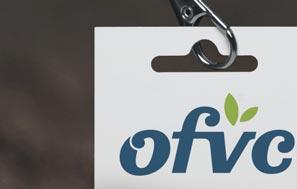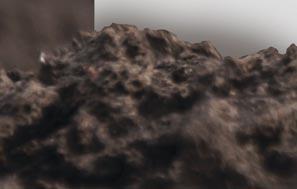
3 minute read
Hire a coach or transition planning facilitator to help keep your transition planning on track.
GREENHOUSE GROWER Vineland researches how to breed resistance to tomato brown rugose fruit virus
More robotics coming to greenhouses
Nearly 10 years ago, Vineland Research and Innovation Centre (Vineland) initiated, in collaboration with the Ontario Greenhouse Vegetable Growers (OGVG) and Agriculture and Agri-Food Canada (AAFC), the only greenhouse tomatoes-onthe-vine (TOVs) breeding program in Canada.
As most tomato varieties have been developed by European seed companies, Vineland’s program focused initially on developing flavourful greenhouse TOVs adapted to the unique climate in southern Ontario, the epicentre of modern greenhouse vegetable production in North America. However, the focus shifted in late 2019, when OMAFRA and OGVG invested in additional research at Vineland to identify a source of resistance to the Tomato Brown Rugose Fruit Virus (ToBRFV) and develop the necessary tools to add resistance to Vineland’s breeding program.
First identified in Israel in 2014, ToBRFV is a newly emerged virus mainly affecting tomatoes and peppers, which has since spread world-wide and was detected in Canada in 2019. Discoloured leaves and crinkled brown or yellow spots on the fruit are the hallmark symptoms of the disease. Although not a food afety concern, the virus reduces the market value of the fruit and threatens global food security.
The Vineland team has since been involved in two separate efforts to combat this virus. First, the team collaborated with researchers at AAFC to screen Vineland’s collection of diverse tomato lines for ToBRFV resistance. Secondly, a partnership was forged with two global seed companies to screen a wide collection of tomatoes in Europe for ToBRFV resistance and to develop tools to efficiently breed that resistance into Vineland’s elite, Canadian-adapted TOVs.
If current efforts are successful, it is anticipated that Vineland will be able to begin testing new, high-yielding varieties in commercial greenhouses in two years, using the newly identified resistance and breeding tools. In August 2022, Vineland showcased its research facility to a group of participants during the International Tomato Brown Rugose Fruit Virus Symposium. Hosted by OGVG in partnership
Drying tomato plants for removal following a viral outbreak.
with OMAFRA, AAFC and Flowers Canada Growers, researchers from around the world addressed topics including: on-going research, crop management strategies and mitigation approaches.
This research program has been funded through AAFC, Genome Canada, Ontario Ministry of Agriculture, Food and Rural Affairs (OMAFRA) and OGVG.
The Canadian Agri-Food Automation and Intelligence Network (CAAIN) has unveiled the projects to be funded through its second Open Competition. Ecoation Innovation Solutions, Kingsville, Ontario, will be receiving $627,898 for its innovative approach to a fully autonomous greenhouse mobility platform.
Called project ANT, the funds will go towards a fully autonomous greenhouse mobility platform. It breaks from the traditional approach of the single-purpose greenhouse robot, and will demonstrate the feasibility of a flexible platform capable of carrying various payloads and addressing many of the challenges inherent in Controlled Environment Agriculture (CEA) automation.
ANT is a system of autonomously navigating robots that serve as a universal mobile platform for nearly any greenhouse automation task. It uses multiple classes of robots that cooperate to delegate tasks efficiently and lower total systems costs. The initiative will accelerate the development and adoption of new automation.



ENGAGE O W & &GROW & ENGAGE& GROW & N E N G A G E & GROW&ENGAGE&GROW& GAG E & G R E ENGAGE & GROW
















